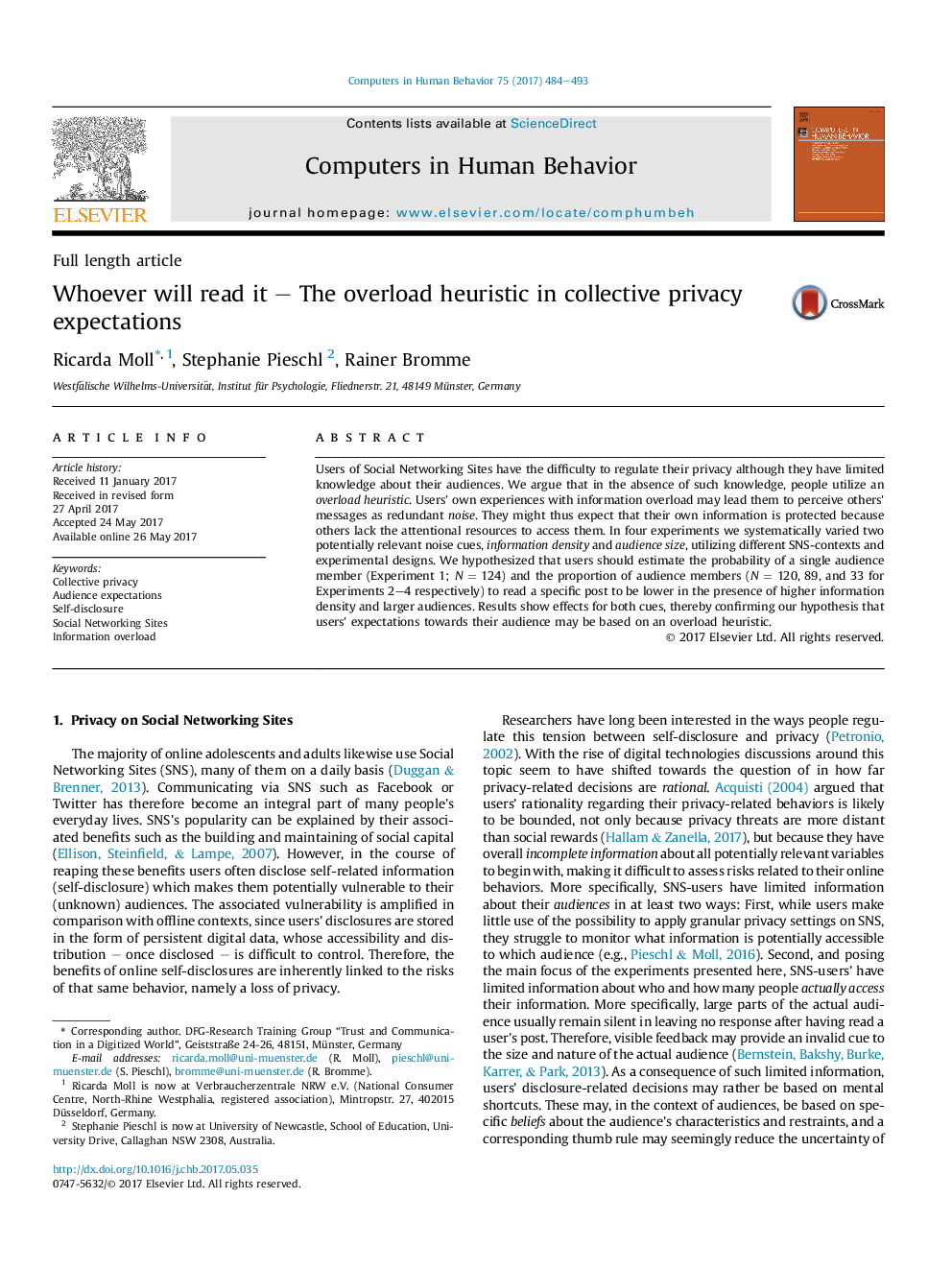| Article ID | Journal | Published Year | Pages | File Type |
|---|---|---|---|---|
| 4937519 | Computers in Human Behavior | 2017 | 10 Pages |
Abstract
Users of Social Networking Sites have the difficulty to regulate their privacy although they have limited knowledge about their audiences. We argue that in the absence of such knowledge, people utilize an overload heuristic. Users' own experiences with information overload may lead them to perceive others' messages as redundant noise. They might thus expect that their own information is protected because others lack the attentional resources to access them. In four experiments we systematically varied two potentially relevant noise cues, information density and audience size, utilizing different SNS-contexts and experimental designs. We hypothesized that users should estimate the probability of a single audience member (Experiment 1; NÂ =Â 124) and the proportion of audience members (NÂ =Â 120, 89, and 33 for Experiments 2-4 respectively) to read a specific post to be lower in the presence of higher information density and larger audiences. Results show effects for both cues, thereby confirming our hypothesis that users' expectations towards their audience may be based on an overload heuristic.
Related Topics
Physical Sciences and Engineering
Computer Science
Computer Science Applications
Authors
Ricarda Moll, Stephanie Pieschl, Rainer Bromme,
